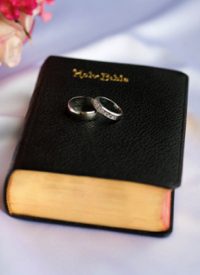
The U.S. Supreme Court heard arguments April 19 to decide whether or not a public institution can deny recognition to a student group if the group requires that only practicing Christians can be members.
The case is Christian Legal Society v. Martinez, a 2004 lawsuit in which the Christian Legal Society (CLS), a student organization at the University of California Hastings College of Law, challenged the school’s policy that prevents student groups from disqualifying members based on the group’s religious beliefs convictions. Specifically, since CLS believes that homosexual behavior runs counter to Christian teaching, it does not allow members who practice this lifestyle, which prompted the law school to deny the club official recognition.
In the years since the group filed a federal civil rights suit against the school, attorneys with the national office of the CLS, along with the Alliance Defense Fund (ADF), have argued before various courts that CLS should not be required to admit homosexuals and non-Christians as members and officers in order to receive recognition. “Forcing CLS to have an atheist lead its Bible studies is as absurd as the College Democrats being forced to elect Republican officers — which under the current Hastings policy is indeed required,” argued ADF Senior Legal Counsel Gregory Baylor, who is assisting in arguing the case before the Supreme Court.
Added Kim Colby, senior counsel at the CLS Center for Law and Religious Freedom, “All students, including Christians, have the right to form groups around shared beliefs without being excluded from campus life.”
Colby noted that arguments before the Supreme Court were “very intense," and that the justices seemed genuinely uncertain about the long-range implications of the law school’s non-discrimination policy. “They were having a great deal of difficulty believing that Hastings’ policy could possibly mean what it says: that all groups must accept everyone as a member or a leader,” Colby told OneNewsNow.com. “And they realized that was problematic not only for religious groups having to accept anyone to lead their Bible studies, but for the Democrats having to accept a Republican as their leader, or for an environmentalist group to have to accept someone who does not believe in global warming.”
While the case is being presented as hinging on the Constitution’s First Amendment guarantee of religious expression, free speech, and assembly, some homosexual groups are using it as a cause célèbre in their fight to broaden the normalization of their lifestyle throughout society. One homosexual group, the Lambda Legal Defense and Education Fund, argued that CLS’ denial of membership to individuals involved in “a sexually immoral lifestyle” amounts to blatant “anti-gay” discrimination. “It would be like saying if a white supremacist group said we’ll admit blacks as long as they admit they’re inferior, or if a male group said we’ll admit women as long as they admit they’re inferior and their place is in the home,” said Cliff Sloan, a Washington lawyer who filed a High Court brief for the homosexual group.
But Baylor noted that the CLS’ policy does not just apply to homosexual behavior, but to all sexual conduct that Christians have traditionally held as sinful. “CLS has a rule that says its representatives should abide by Christian standards of sexual morality,” he said, “and that means a representative of CLS should not be engaged in activity that most Christians have considered to be immoral for two millennia.”
Among the groups offering opinions on the case was the Association of Christian Schools International, which warned that if the Supreme Court rules the CLS “does not have any constitutional right to religious association in the context of this case, then there will be little constitutional protection of religious employers, particularly if they receive any kind of government benefit, use government buildings such as schools and convention centers and/or participate in government-funded programs.”
In a “Friend of the Court” brief on behalf of the CLS, the American Center for Law and Justice (ACLJ) argued that religious groups are constitutionally protected in following their religious beliefs. “Religious groups by their nature embrace religious principles and, as a matter of organizational identity and coherence, will normally require adherence to such principles as a criterion for membership and certainly for leadership,” stated the ACLJ brief. “Wooden application of religious ‘non-discrimination’ policies therefore forces religious groups to choose between their religious identity and access to the forum. That ‘choice’ is an unconstitutional one between yielding to government intermeddling and no access at all. Far from a permissible condition on benefits, this is a choice that the government, under the Religion Clauses, has no business imposing on religious groups.”
The CLS, which has chapters at universities nationwide, has sued other universities with policies similar to that of the Hastings law school. In 2007, it was successful in a suit against Southern Illinois University, forcing the university to recognize the group’s policies. And in 2009, a federal judge ruled that the University of Montana law school had not discriminated against the CLS in refusing to grant the group funding because of its policies.
A decision on the present case before the Supreme Court is expected by the end of June.



